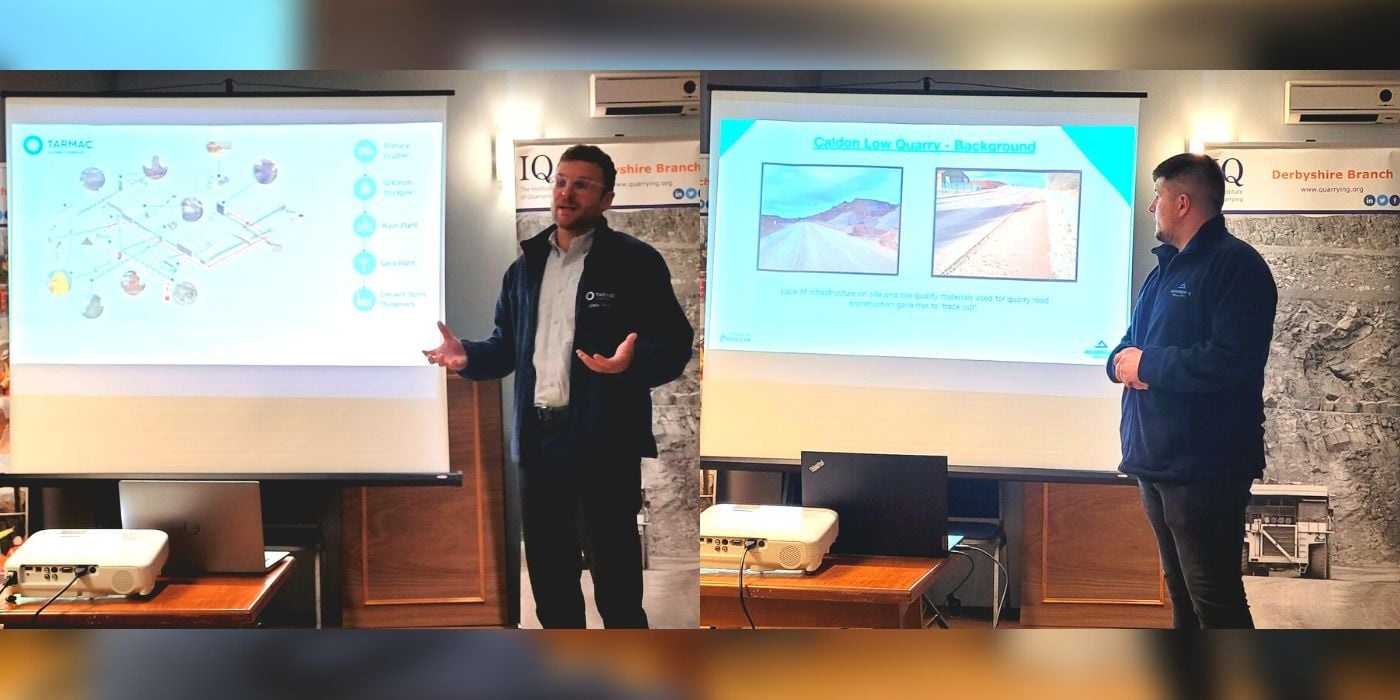 Members of the IQ Derbyshire branch recently experienced the final project presentations from two local students pursuing the BSc in Minerals Management at the University of Derby's Centre for Mineral Products.
Members of the IQ Derbyshire branch recently experienced the final project presentations from two local students pursuing the BSc in Minerals Management at the University of Derby's Centre for Mineral Products.
James Forrester, Assistant Manager at Cauldon Low Quarry, and Lewis Pinch TMIQ, Stone Business Manager at Tarmac Tunstead, shared the findings of their respective projects, both of which had yielded tangible business benefits for their employers.
James' project, initially framed as addressing "dirty roads," delved deeper into understanding the causes of dirt and dust on-site, its escape mechanisms, and the functionality of wheel washing systems. His goal was to enhance public road cleanliness and improve the site's relationship with the local community. James strategically examined the placement of wheel washing facilities on-site, and their accessibility on exit routes to public roads, experimented with pressurised wheel washing methods, and investigated how road stabilisation impacts dirt and dust levels.
Armed with insights from his research, James successfully relocated the washing facility and rerouted traffic around the site. The resulting impact included a cleaner site and local roads, the environmentally friendly use of recycled lagoon water for wheel washing, cost savings through reduced road sweeper requirements, improved cultural and behavioural practices among drivers, and a 50% reduction in complaints from local residents, contributing to enhanced community relations.
Lewis Pinch's project took a different focus, examining washed limestone sand and its potential to optimise the washing plant and slurry usage efficiency. His experimentation with different blends aimed at meeting concrete product specifications revealed that increased dust content led to improved performance and enhanced 7-day strength. This discovery paved the way for a product with superior characteristics, reduced production costs, and enhanced control across the entire site.
In the second part of his project, Lewis addressed the challenge of increased slurry usage on-site, particularly concerning sulphur levels. Through meticulous tracking of chemical compositions during different shift patterns, he implemented changes to the production process that reduced sulphur levels by 38% and increased on-site slurry consumption by 23%. Additionally, Lewis's project included trials of slurry conditioning cells, effectively drying out slurry over a 3-month period for use in site restoration.
The presentations highlighted the value of attending IQ branch events, emphasising the exchange of ideas and experiences for the industry's collective improvement. The direct insights from student projects underscored the practical benefits of mineral products qualifications, showcasing the industry's promising future. As remarked by IQ Derbyshire Chair John McGough, "These presentations show that the future of the industry is in good hands."